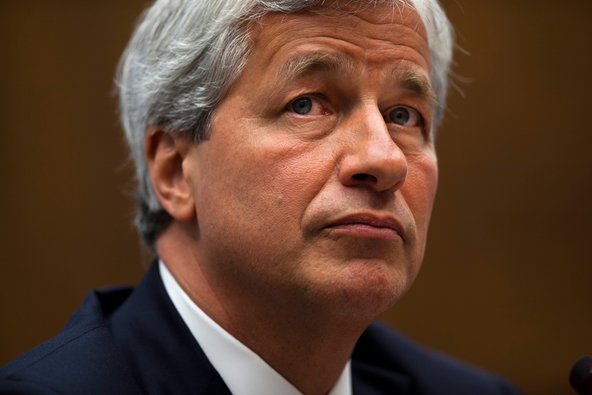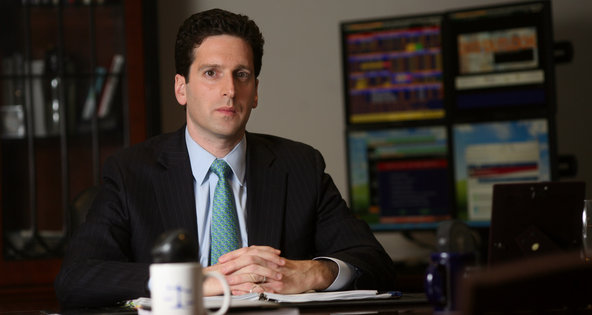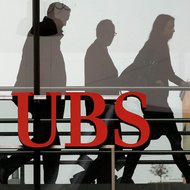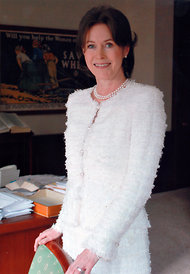 Jim Lo Scalzo/European Pressphoto AgencyA Senate panel report says that Jamie Dimon, the chief executive of JPMorgan Chase, withheld details about the bank’s daily losses.
Jim Lo Scalzo/European Pressphoto AgencyA Senate panel report says that Jamie Dimon, the chief executive of JPMorgan Chase, withheld details about the bank’s daily losses.
JPMorgan Chase, the nation’s biggest bank, ignored internal controls and manipulated documents as it racked up trading losses last year, while its influential chief executive, Jamie Dimon, briefly withheld some information from regulators, a new Senate report says.
The findings by the Congressional investigators shed new light on the multibillion-dollar trading blunder, which has claimed the jobs of several top executives and prompted an inquiry by the Federal Bureau of Investigation. The 300-page report, released a day before a Senate subcommittee plans to question bank executives and regulators at a hearing, will escalate the debate over how to police complex risk-taking on Wall Street. It may also foreshadow a criminal case against employees at the heart of the troubled wager.
A spokeswoman for the bank said on Thursday, “While we have repeatedly acknowledged significant mistakes, our senior management acted in good faith and never had any intent to mislead anyone.”
Mr. Dimon, whose reputation as an astute manager of risk has been undercut by the trading losses, comes under the harshest criticism yet from the Senate investigators. The chief executive signed off on changes to an internal alarm system that underestimated losses, seemingly contradicting his earlier statements to lawmakers, according to the report.
Related Links
 Documents on JPMorgan’s Trading Loss
Documents on JPMorgan’s Trading Loss Graphic: A Complex Strategy That Backfired
Graphic: A Complex Strategy That Backfired- The Things Bankers Say, the London Whale Edition
He is also accused of withholding from regulators details about the investment bank’s daily losses — and then raising “his voice in anger” at a deputy who later turned over the information.
While people close to the matter dispute whether the outburst actually happened, it illustrates a broader problem at JPMorgan: after emerging from the financial crisis in far better shape than rivals, the bank saw itself as being above its regulators. The bank was so filled with hubris, Senate investigators said, that an executive once screamed at examiners and called them “stupid.”
The bipartisan report, citing some of the same private documents that F.B.I. agents are now poring over, also highlighted how JPMorgan managers “pressured” traders to lowball losses by $660 million, a previously undisclosed figure, and then played down the problems to authorities.
The bank’s trader who became known as the London Whale — because of the outsize derivatives trades at the center of the bank’s losses, which now total more than $6 billion — told a colleague last year that the bank’s estimated losses were “getting idiotic,” according to a transcript of their phone conversation cited by the subcommittee. The trader, Bruno Iksil, added that “I can’t keep this going” and that he didn’t know where his boss in London “wants to stop.”
Federal investigators, seeking Mr. Iksil’s side of the story, now plan to interview the trader overseas, according to people briefed on the investigation.
Timeline: JPMorgan Trading Loss
After examining hundreds of e-mails and hours of taped phone calls, the people said, federal investigators also plan to interview top JPMorgan executives in the coming weeks, including Mr. Dimon. While authorities do not suspect the chief executive of wrongdoing, the meetings signal that the case is at an advanced stage.
The breakdowns at both the bank and at its regulators, in particular the Office of the Comptroller of the Currency, could galvanize support for new curbs on Wall Street trading.
Calling the bank’s trading strategy a “runaway train that barreled through every risk warning,” Senator Carl Levin, the Michigan Democrat who runs the Permanent Subcommittee on Investigations, said that the bank “exposed daunting vulnerabilities” in the financial system.
Demands from regulators for more information were met with resistance at JPMorgan, the subcommittee said. The pushback extended to the highest levels of the bank, the report found, and was not limited to requests about the bank’s chief investment office, where the losses took place.
For a brief period in 2012, the subcommittee said, JPMorgan stopped providing profit and loss reports for the investment bank to the comptroller’s office. Mr. Dimon, the subcommittee said, had choked off delivery of the reports because he thought “it was too much information to provide.”
Some people briefed on the matter dispute that characterization, noting that the reports were briefly halted because of security concerns.
Yet at other times, the bank was not fully forthcoming, Senate investigators said. During a meeting in January 2012 with the comptroller’s office, JPMorgan said it intended to reduce the size of the complex trading bet. Instead, the bank increased the positions.
Ina Drew, who headed the chief investment office, balked at the regulator’s demands for more information, resisting them as “unnecessary and intrusive,” the subcommittee said in its report.
Bryan Hubbard, a spokesman for the currency office, said the agency acknowledged there “were shortcomings in the O.C.C. supervision leading up to and responding to the unfolding events” with JPMorgan’s chief investment office.
He added that “as the bank revealed the true nature of the C.I.O. operation and the level of loss exposure, the comptroller escalated the agency’s response and ordered a two-pronged review into the bank’s actions as well as the O.C.C.’s.”
JPMorgan faces the most scrutiny over its lowball estimates of losses, the topic of the F.B.I.’s investigation. While traders have leeway to value their losses, the bank in 2012 moved from marking them in a “middle range” to some of the most generous possible figures.
One junior trader in London, Julien Grout, told Mr. Iksil in a recorded phone conversation: “I am not marking at mids as per a previous conversation.” For five days in March, Mr. Grout also kept a spreadsheet that tracked the difference between his valuations and the midpoint. The documents, according to the subcommittee, showed that his valuations underestimated the losses by $432 million.
The bank’s controller, alerted to potential problems, issued an internal report in May 2012 that essentially cleared the traders of wrongdoing. The marks, according to the report, were “consistent with industry practices.”
But JPMorgan, the subcommittee noted, later had to restate its earnings to reflect the overly rosy estimates.
“The bank said the markings complied with the standards of the industry,” Mr. Levin said. “We don’t think that’s true.”
Mr. Levin called for new rules that would force banks to strengthen their methods for valuing their trades. He also urged regulators to finalize the so-called Volcker Rule, which would prevent banks from making such bets with their own money.
JPMorgan, the subcommittee noted, “mischaracterized high risk trading as hedging,” or mitigating risk, which is allowed under the Volcker Rule. Douglas Braunstein, the bank’s chief financial officer, told analysts in April that the position “is consistent” with a proposed version of the Volcker Rule, a conclusion that the subcommittee dismissed as false.
One regulator wrote in a May 2012 e-mail that the position was a “make believe voodoo magic ‘composite hedge.’ ”
As the traders in London assembled increasingly complex bets, JPMorgan ignored its own risk alarms, according to investigators. In the first four months of 2012 alone, the report found, the chief investment office breached five of its critical risk controls more than 330 times.
Instead of scaling back the risk, though, JPMorgan changed how it measured it, in a metric known as value at risk, or VaR, in January 2012, enabling the traders to continue building the big bets, the subcommittee found.
The report provides further detail about what Mr. Dimon knew about the changed alarm system. Mr. Dimon told the subcommittee that he couldn’t “recall any details in connection with approving the VaR limit increase.”
But Mr. Dimon personally authorized JPMorgan to temporarily increase the measure, writing in a January 2012 e-mail, “I approve.”
A version of this article appeared in print on 03/15/2013, on page A1 of the NewYork edition with the headline: Senate Inquiry Faults JPMorgan on Trading Loss.
Article source: http://dealbook.nytimes.com/2013/03/14/jpmorgan-faulted-on-controls-and-disclosure-in-trading-loss/?partner=rss&emc=rss




